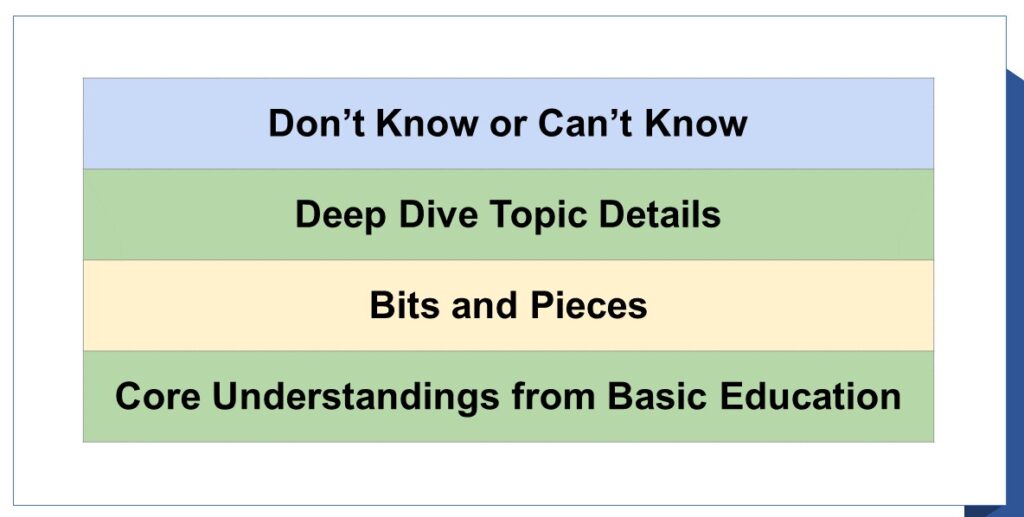Ever heard the expression “all I know,” as in “all I know is this.” All too often statements like these represent the proclaimer’s true position. Instead of always assuming we hold sufficient amounts of information, maybe it’s time to recognize the true structure behind knowledge and humble ourselves just a bit.
In general, knowledge can be broken into four categories: core understanding around the topic, bits and pieces you find lying around (say, in a newspaper), details you gain through a deep dive, and that which isn’t available or can’t be known. Recognizing these four areas is essential for any adult conversation.
The problem with social issues is few approach the table with basic understandings, even less do a deep dive, and almost no one acknowledges the world we don’t know. As a result, we mostly fly with bits and pieces, which isn’t much for knowledge.
So why don’t we respect these complexities and act like we do in business? My guess is we’re so desperate for opinions in an overloaded world that we’ll grab onto anything just to close a few loops. That, and most people aren’t used to dealing with reams of information.
50 questions
When faced with an issue that requires serious amounts of consideration, researchers often tackle the question by asking 50 more. For example, should we open a plant in Buffalo? In business, the initial response is to determine what you need to know. Veterans do this by asking 50 or so questions before analyzing any results.
What are rents like in Buffalo? Is plant or warehouse space available? What about staffing? How much do people earn in and around the area? What’s the cost of living? How about the market? Are customers being underserved or over? And how good is the competition? These sorts of queries are just the beginning. So it goes without saying that business investment insists upon serious analysis and even in personal life consumers put more time into buying a home than a shirt.
Summary
The problem isn’t that people aren’t smart. Everyone learns in their own way. What makes so many issues complicated is the knowledge and understanding they require. And with so many surrounding us on a daily basis we naturally wish to simplify just to maintain sanity. As a result, we often come to poorly researched conclusions.
The next time you’re faced with selecting a stance over politics or what to do in the stock market ask yourself this: do I have a basic education around the topic, have I done a deep dive, and am I realistically taking into account all that I don’t know. Because in life, it’s usually about more than just bits and pieces.
